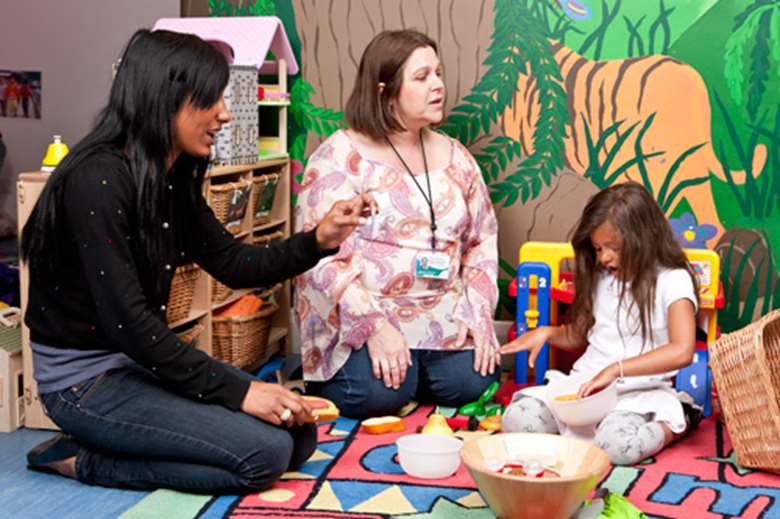Sector leaders call on government to rethink Early Intervention Grant cut
Gabriella Jozwiak
Monday, October 1, 2012
Children's sector leaders are urging ministers to drop plans to hold back £150m from the Early Intervention Grant, to avoid spending more on crisis support in the long-term.

According to a Department for Communities and Local Government consultation, £150m will be retained from the grant in 2013/14 and 2014/15 “for future use in funding early intervention and children's services”.
But the Local Government Association (LGA) claimed that the government has “provided no justification for this arbitrary reduction”, “nor has it offered any explanation for how the money withheld will be utilised”.
“Cutting core Early Intervention Grant funding is counter-productive and will lead to significant cost pressures in the longer term, due to increased demand for more costly longer-term/lifelong interventions,” a statement from the association warned.
It meanwhile emerged last week that hundreds of millions of pounds to fund free nursery places for disadvantaged two-year-olds is to be cut from the Early Intervention Grant and transferred to the Dedicated Schools Grant, meaning that councils have no flexibility over how to use the cash.
Debbie Jones, president of the Association of Directors of Children's Services, said the decision both to hold back £150m from the Early Intervention Grant and to shift funding for the free entitlement would hamper councils' efforts to provide preventative services.
“Reducing the funds available and shifting the grant into the general funding pot for local authorities will hinder the important momentum gained over the last two years in establishing early intervention services in local authorities,” she said.
“This turbulence makes it very difficult for local authorities to plan budgets responsibly for the next few years or to innovate in designing services to deliver them more cheaply. That is not helped by the confusing consultation process, split over a number of documents, on such important issues.”
Family Action’s chief executive Helen Dent said the move would be damaging for families. “Top-slicing the Early Intervention Grant and threatening Sure Start and services for families with multiple complex problems is a backwards step and could further decimate services already affected by austerity,” she said.
“The reality is that many centres have been cut back to the bare bones and further cuts will make many centres unviable and the whole philosophy that underpins Sure Start will crumble.”
Anne Longfield, chief executive of the charity 4Children, added: “We need an urgent explanation of where the £150m reduction is planned to be spent, and a commitment that it will be reallocated to local authorities if it is not to be invested in early intervention programmes.
“4Children is calling on the government to guarantee a ring-fenced early intervention fund, with a commitment to cyclical growth, for the remainder of the Parliament.
The Council for Disabled Children warned that £202m of funding for short breaks for disabled children for included in the Early Intervention Grant could be put at risk.
“As more elements of support are grouped within the Early Intervention Grant, we fear there will be an inevitable squeeze on short breaks funding,” said Laura Courtney, campaign manager for Every Disabled Child Matters.
“In the context of overall local authority cuts to children’s services, this is likely to put services under even more pressure, and to increase the risk that families with disabled children will fall through the gaps.”
Mentor’s chief executive, Paul Tuohy, said further cuts could lead to higher levels of young people with drug and alcohol dependency in the future.
“Many critically important local services will be affected by this sleight of the hand,” he said. “Drug education in schools is already perilously low priority and with further reduction of funding may disappear altogether in some areas.
“The result will be more generations of underachieving and undereducated citizens, with those who become drug or alcohol dependent adults costing the country £827,000 over their lifetime. The government seems intent in investing in chances for two-year-olds at the expense of 10-, 15- and 20-year-olds and their parents.”




